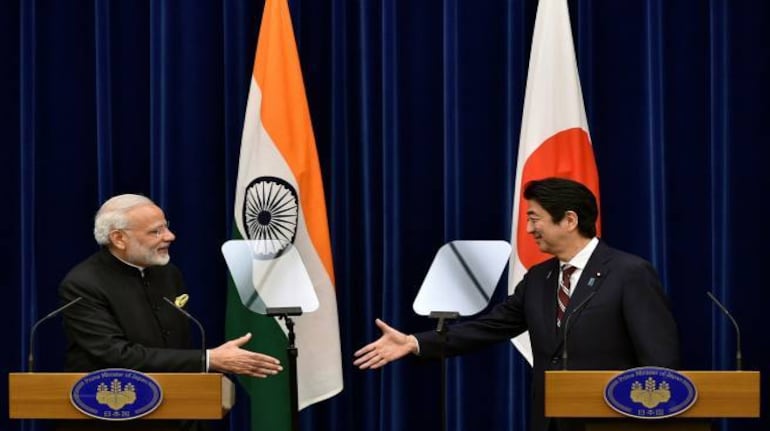India's long-term commitment to supporting Japanese allyship in building South Asian states’ infrastructure has been reaffirmed post-COVID-19
On July 6, Commerce and industry Minister Piyush Goyal said that a group of important officials would be working to resolve Japanese investors’ concerns on logistics, customs clearance, export procedures, and quality issues.
The announcement comes at the backdrop of more than 200 investment plans of Japanese companies in India, including factory construction and production line expansion being stuck.
According to the Invest India website, Japan is the fourth-largest investor in India and has brought in a cumulative foreign direct investment (FDI) worth $33 billion during 2000-2020, contributing 7.2 percent to India's total FDI inflow during the same period.
In FY 2018-19, Japan's import to India stood at $12.77 billion, making it India's 14th largest import partner. For the same period, India's exports to Japan stood at $4.86 billion, making it India's 19th largest export partner.
On the strategic front, as China increasingly becomes a threat in South and East Asia with aggressive ambitions to dominate sea routes, Indian and Japanese alliance to counter China has only strengthened, as seen in Japanese participation in Malabar naval exercises and the reemergence of Quad 2 or the Quadrilateral Security Dialogue - which includes Australia, India, Japan, and the United States.
India's long-term commitment to supporting Japanese allyship in building South Asian states’ infrastructure has been reaffirmed post-Covid-19.
Japan has had a long history of association in India. Maruti Suzuki, a joint venture between India and Japan, has been in India for the last 37 years. Maruti Suzuki owns over 50 percent market share in the automobile sector. Apart from Suzuki, companies like Toyota, Mitsubishi, and Honda have been prominent players in the Indian auto market.
A lot of research and market studies have pointed out that syncretic cooperation in fields like automobile, pharma, chemical, electronics, textile, and food processing could help both countries, as in each of these cases, India offers an advantageous manufacturing base and the market for the Japanese.
The global outbreak of the Covid-19 pandemic has led to countries across the globe to re-orient their dependence on China, as all countries were adversely affected by the breakdown in supply chains.
In the National Industrial Corridor Development Corporation, Japan Bank for International Cooperation holds 26 percent in the venture which would be creating five industrial corridors in India.
However, despite this transactional allyship, India doesn't occupy a major place in Japan's trading landscape.
“Japanese companies have invested a lot in India in past decades, and nearly 1,500 companies have set up their base. Still, India-Japan economic cooperation has not performed its full potential yet. India should leverage this opportunity by looking at what India’s competitors such as ASEAN countries are doing to attract Japanese investment,” Satoshi Suzuki, the Japanese ambassador to India had said.
However, in a post-COVID world, India could increase its trading potential with Japan by attracting foreign investments through developed infrastructure and better regulations.





